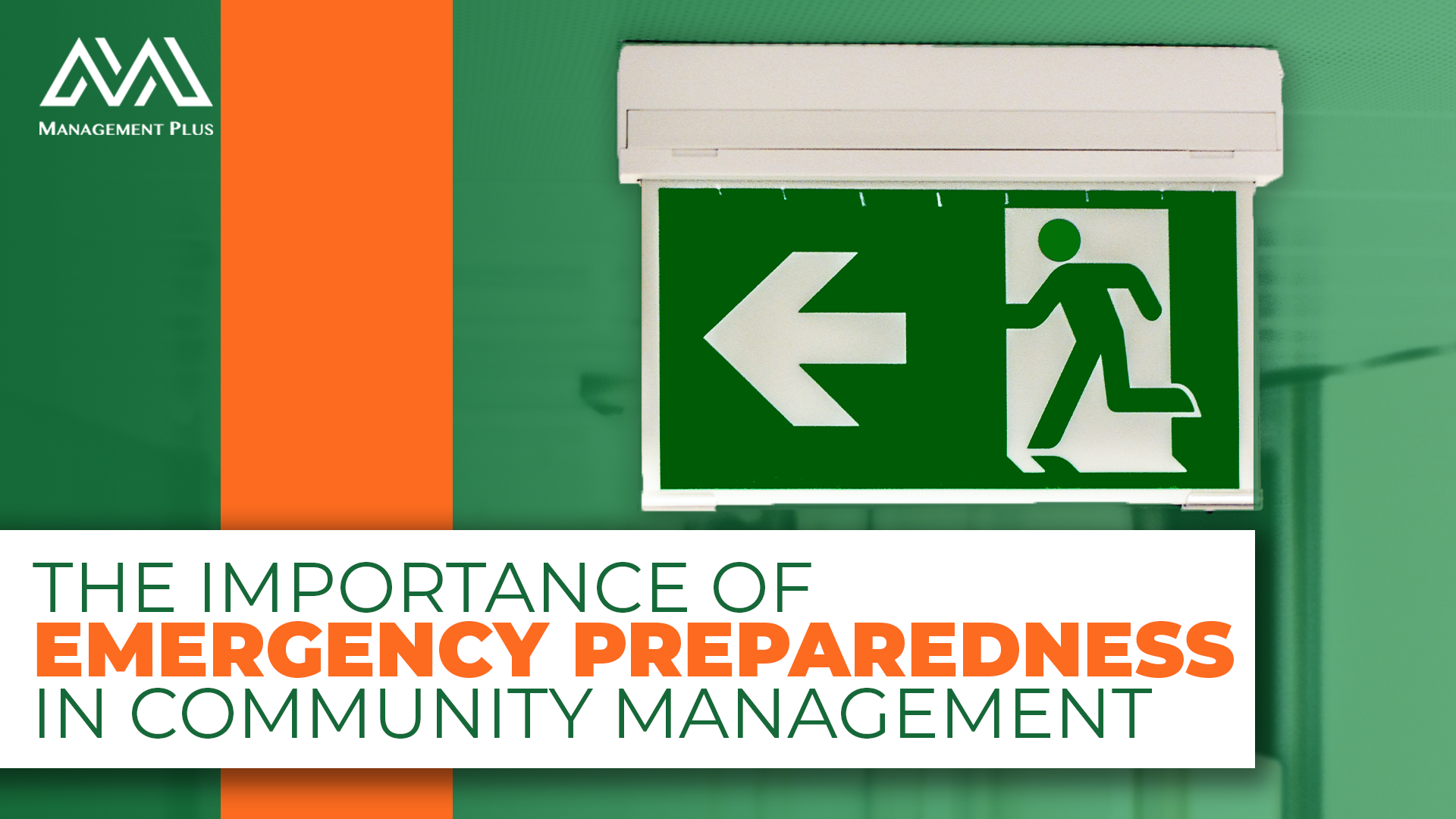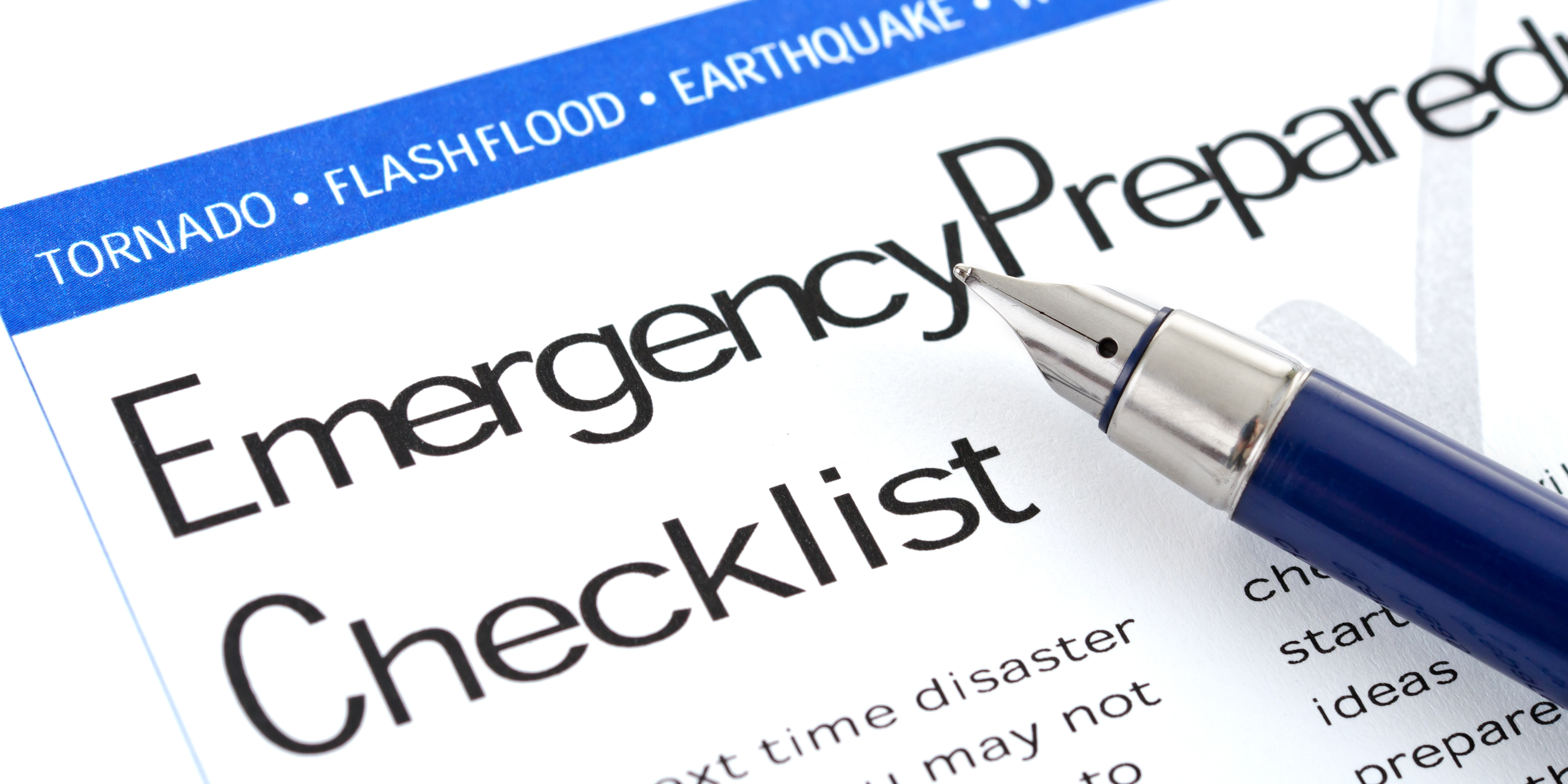The Importance of Emergency Preparedness in Community Management
The Importance of Emergency Preparedness in Community Management

Your HOA board members play many roles. They organize and coordinate events and meetings, manage funds and finances, and serve as leadership for the trajectory of the community. However, one role that is often overlooked is that of board member leadership during times of emergency.
Emergencies can be anything from floods to wildfires, and to keep your community safe, board members must have a comprehensive Emergency Preparedness Plan in place. Emergency Preparedness Plans (or EPPs) are community-wide plans that advise residents on what to do in the event of a specified emergency. They are key to ensuring safety and order during high-pressure events.
In this post, we will discuss the importance of EPPs in community management and how they make communities safer.
What is an Emergency Preparedness Plan?
An Emergency Preparedness Plan is a comprehensive document that outlines the steps and procedures necessary to effectively respond to and recover from various emergency situations. It serves as a blueprint for community management teams, outlining their roles and responsibilities during different types of crises.
EPPs can be applied to a wide range of emergency situations, including natural disasters such as earthquakes, hurricanes, floods, and wildfires. They also cover man-made disasters like industrial accidents. Additionally, EPPs address public health emergencies, such as disease outbreaks and pandemics.
The goal of an EPP is to ensure that community management teams are prepared to respond promptly and effectively to any emergency, minimizing the impact on residents and maximizing their safety. These plans outline evacuation routes, designate emergency contacts, and detail the recovery phases post-disaster. They also emphasize the importance of community partnerships and coordination with various levels of government.
Role of Community Managers in Disaster Readiness
Community managers play a crucial role in disaster readiness and response. In the face of emergencies, their responsibilities extend beyond their typical duties of overseeing community operations.
Community managers initiate and coordinate emergency responses. They are responsible for developing and implementing Emergency Preparedness Plans, ensuring that these plans align with applicable regulations and guidelines. They collaborate with emergency management teams and stakeholders to create comprehensive EPPs that address a range of potential emergencies.
The importance of their role lies in their ability to prepare communities for disasters effectively. Community managers assess the specific needs and vulnerabilities of their communities and tailor their preparedness plans accordingly. They identify evacuation routes, establish emergency contacts, and disseminate crucial information to residents. By doing so, they ensure that residents are well-informed and know what actions to take in the event of an emergency.
Additionally, community managers forge partnerships with local government agencies, community organizations, and first responders. These partnerships facilitate effective coordination, information-sharing, and resource allocation during emergencies. By leading these efforts, community managers foster a community-wide approach to emergency preparedness and response, enhancing overall resilience.
Learn more about HOA fees and what they cover here!

Community Engagement: Fostering a Culture of Preparedness
One of the keys to effective emergency preparedness in community management is getting the community actively involved in the planning process. By fostering a culture of preparedness, community managers can ensure that residents are not only aware of the potential risks but also actively participate in taking necessary actions.
To achieve this, community managers can organize regular community meetings or workshops focused on emergency preparedness. These gatherings can provide an opportunity for residents to learn about different emergencies, discuss strategies, and share their concerns. By actively engaging residents in these discussions, community managers can gather valuable insights and ideas that can enhance emergency preparedness plans.
Community managers can also promote community-based initiatives, such as forming neighborhood emergency response teams. These teams, consisting of trained volunteers from the community, can play a vital role in supporting emergency response efforts. Community managers can facilitate the establishment of these teams by organizing training sessions, providing necessary resources, and encouraging residents to join.
Furthermore, leveraging technology can be an effective way to engage the community. Community managers can create online platforms or use social media to disseminate information, share updates, and encourage residents to be proactive in their preparedness efforts. By using these digital tools, community managers can reach a larger audience and encourage community members to stay informed and engaged.
What is a neighborhood watch program? This blog has some pros and cons.
Budgeting for Disaster Preparedness in Community
Effective emergency preparedness in community management requires proper resource allocation, particularly when it comes to budgeting for disaster preparedness. Creating a budget and setting aside funds for emergency preparedness is crucial to ensure that the community has the necessary resources to respond effectively and efficiently to emergencies.
To create a budget for disaster preparedness, community managers should first assess the potential risks and vulnerabilities of the community. This assessment will help identify the specific needs and priorities for emergency preparedness. Once the needs are identified, community managers can allocate funds accordingly. Consider factors such as equipment, training, communication systems, and community outreach programs.
It is important to regularly review and update the budget to reflect any changes in the community's needs or the cost of resources. If the allocated funds are not fully spent during a specific period, community managers should consider reallocating the unused funds for other emergency preparedness initiatives or carrying them forward to the next budgeting cycle. This flexibility ensures that the allocated resources are utilized effectively and optimally.
In cases where the budget falls short of meeting all the community's emergency preparedness needs, community managers can explore alternative funding sources, such as grants, sponsorships, or partnerships with local businesses and organizations. Creating a budget contingency plan can also help address unforeseen circumstances.
By carefully budgeting for disaster preparedness, community managers can ensure that their community is adequately equipped to respond to emergencies and minimize the adverse impacts of disasters. Allocating funds strategically and implementing a comprehensive budgeting plan is a key component of effective community emergency preparedness.
What are some HOA financial management best practices? Learn more here!
Training and Education: Empowering Residents for Crisis Response
Training and education are essential for empowering residents to effectively respond to crises and emergencies. Board members should pursue training that equips them with the necessary skills and knowledge to handle various emergency situations. This includes training in emergency preparedness, first aid, CPR, and disaster response.
By participating in training programs, board members can learn about the different types of emergencies that may occur in the community and the appropriate steps to take in each scenario. They can also gain insights into how to best communicate and coordinate with residents, emergency responders, and local authorities during a crisis. This training helps board members stay prepared and enables them to take quick and effective action in stressful situations.
In addition to board members, it is crucial to provide training and education opportunities for all residents within the community. This can be done through workshops, seminars, and informational sessions that cover topics like evacuation procedures, emergency communication systems, and basic life-saving skills. By educating residents, the community as a whole becomes more resilient and better equipped to handle emergencies.
Emergency Preparedness for Cold Weather Emergencies
Cold weather emergencies are another situation your HOA needs to be prepared for. In Ohio, weather can drop to well below zero degrees in the throes of winter, leaving members of your community vulnerable to the cold and low supplies.
Here are a few quick things your board needs to prepare for.
- Shovel and salt icy roads and sidewalks. Many of your residents rely on roads and sidewalks to get around, even on the snowiest winter days. Be sure that you have a plan to plow both roads and sidewalks and have a supply of salt on hand to ensure that there is no dangerous ice on walking surfaces.
- Regular plumbing inspections in non-frozen conditions can help ensure that your residents have running water even on the coldest days of the year.
- Encourage or support furnace inspection. Your residents, especially those who are elderly, are vulnerable to frigid temperatures. And if they are snowed in, they might have trouble seeking help. Be sure to encourage or support all your residents in getting their furnaces inspected during summer or fall.
- Have a check-in plan so that all residents are accounted for and confirmed to be safe during snow or cold emergencies. Board members can go door to door, or you can have a plan to call residents to verify their safety.
Cold weather can be more dangerous than you might realize. Be sure that your community has a plan in place for resident safety in the event of a cold weather emergency.
Better Community Preparedness with Management Plus
Preparing your community for disaster is one of the key roles of excellent HOA leadership. Having a comprehensive plan during an emergency ensures that all residents work together and maintain order while under crisis.
This plan starts at the top and trickles down through preparedness and communication. However, if your HOA board members are volunteers with full-time jobs and rich family lives, then coming up with EPPs can be difficult.
In that case, you need an experienced property manager who you can count on to guide your community through even the most difficult of times. These property managers have the expertise needed to help your HOA through its biggest challenges.
If you are curious about the difference a community manager could make for your association community, click here to start a conversation with Management Plus today!
Looking for more association management tips? Follow Management Plus on Facebook, Instagram, and LinkedIn!
Happy with the impact Management Plus has had on your community? Leave us a five-star review here!
